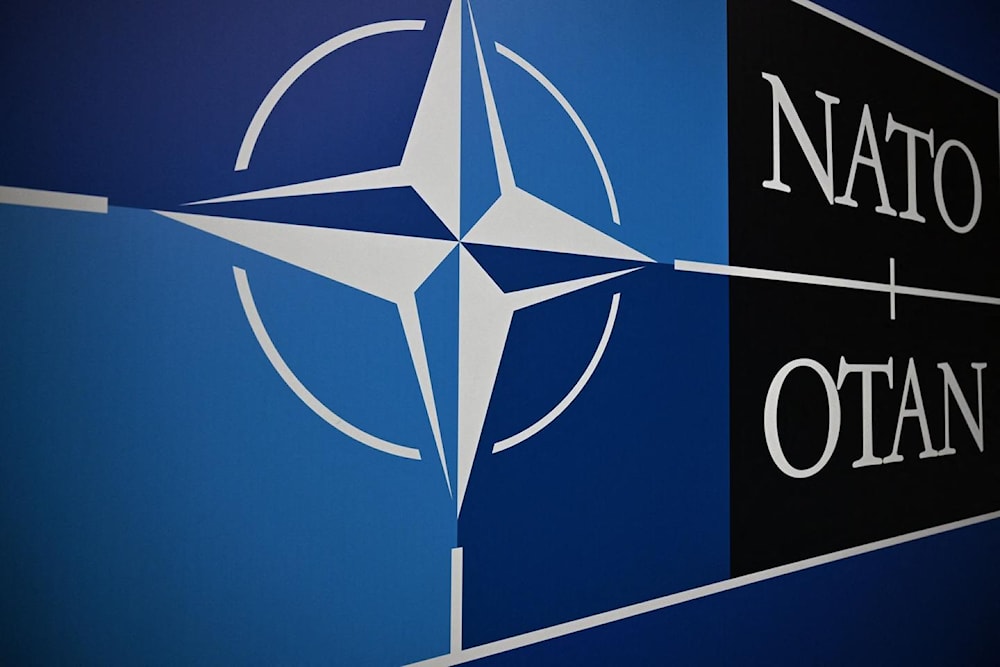NATO corruption scandal exposes procurement fraud
A new NATO corruption scandal is sparking arrests and raids across six countries, with officials probing bribery, defense contract fraud, and internal leaks at the NSPA.
-

The NATO logo appears in this undated photo. (AFP)
Multiple European countries and the United States have launched coordinated investigations into a widening NATO corruption scandal, focusing on procurement fraud and misconduct within the alliance’s logistical arm, the NATO Support and Procurement Agency (NSPA).
The NSPA is NATO’s main services provider, delivering a broad spectrum of integrated capabilities for the Alliance, its member nations, and partners. The agency brings together NATO’s logistics support and procurement activities, providing effective and cost-efficient multinational support solutions. NSPA is a customer-funded agency, operating on a "no profit - no loss" basis.
Police conducted a series of raids and arrests in Luxembourg, Belgium, the Netherlands, Spain, Italy, and the US, in a sweeping probe targeting both current and former NSPA employees. The joint operation, overseen by Eurojust, the European Union’s criminal justice agency, centers around allegations of bribery, irregular contract awards, and internal leaks of classified information to private defense contractors.
The NSPA, headquartered in Luxembourg, initiated the internal investigation after detecting anomalies in contract assignments. A spokesperson for NATO confirmed that the agency is working “closely with law enforcement to ensure that perpetrators are brought to justice,” and emphasized NATO’s intent to strengthen internal safeguards to prevent further misconduct.
Authorities in Belgium and the Netherlands confirmed multiple arrests. Two individuals were detained in Belgium, while Dutch police apprehended three suspects, including a former Defense Ministry official arrested at Amsterdam's Schiphol Airport on suspicion of accepting bribes related to NATO defense contracts in 2023. Investigators believe these individuals may have shared confidential tender information and received illicit payments for steering contracts involving military equipment purchases, such as ammunition and drones.
🚨 Eurojust coordinates investigations into alleged corruption in military equipment purchases for NATO.
— Eurojust (@Eurojust) May 15, 2025
This allegedly took place via particular current and former employees of the NATO Support and Procurement Agency (NSPA).
Press release 👇https://t.co/bs57bqPCzh
The public prosecutor’s office in Luxembourg stated that the NSPA staff under investigation are suspected of having “used their positions to enrich themselves.” Seized documents are now being analyzed for evidence of systematic corruption and money laundering.
NATO and EU agencies pledge full cooperation
“NATO, including the NSPA, is working closely with law enforcement to ensure that perpetrators are brought to justice,” said NATO spokesperson Allison Hart. Meanwhile, NATO Secretary-General Mark Rutte, speaking from Ankara, Turkey on Thursday, emphasized that the alliance is committed to uncovering the full scope of the scandal. “We want to get to the root of this,” he said.
The raids reflect growing pressure on transatlantic institutions to enforce transparency, particularly amid increased military spending in the wake of the conflict in Ukraine. Investigators are expected to expand their probe to other officials and contractors involved in recent tenders.
The scandal comes at a politically sensitive time. NATO and EU member states are racing to enhance military readiness and ramp up arms production, especially to sustain deliveries to Ukraine. In March, the European Commission announced plans to raise €800 billion ($896 billion) to bolster Europe’s defense industry under a new rearmament initiative.
The NATO Support and Procurement Agency plays a critical role in coordinating the alliance's logistics, acquisitions, and operational supplies, and corruption within its ranks could severely undermine the credibility of joint procurement initiatives and delay key arms deliveries amid escalating geopolitical tensions.
As investigations continue, both EU and NATO officials are under scrutiny to ensure accountability and restore trust in their defense procurement systems.

 3 Min Read
3 Min Read










